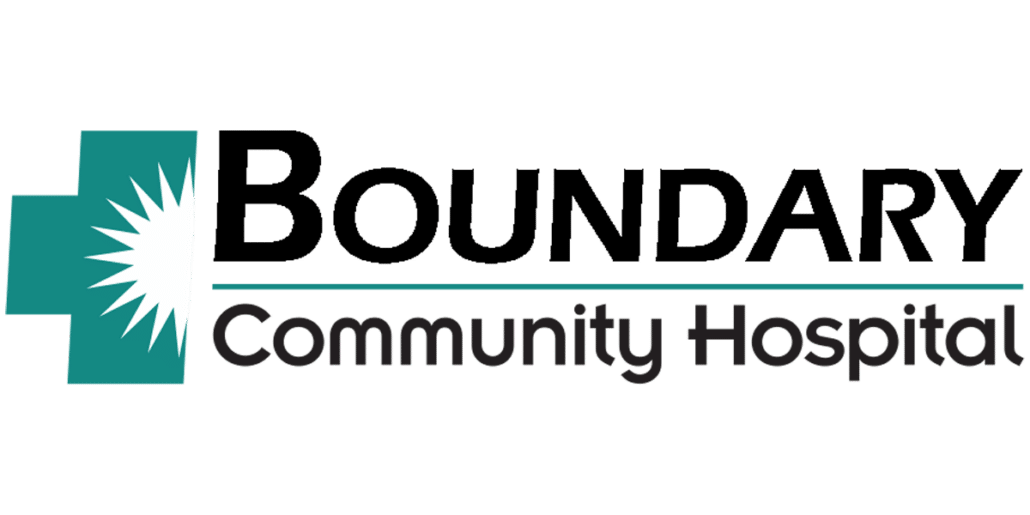Health Unit Coordinator in Acute Care
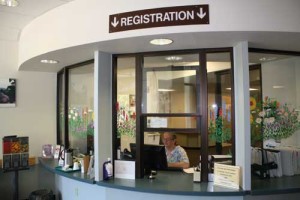 The first face you see when you enter the lobby for the Emergency Department and Acute Care and the last face you see when you are leaving, the Health Unit Coordinator (HUC) team member is a key patient contact that many may not know. These caring, observant, detail-oriented, multi-taskers are willing and able to ensure that the patients (“their patients”) and their families have their needs met. Due to the demands of the position, finding and training new team members is difficult and involves extensive training. Luckily, at Boundary Community Hospital, we are fortunate to have eight individuals that proudly represent the hospital in this capacity, many of whom have worked here for years.
The first face you see when you enter the lobby for the Emergency Department and Acute Care and the last face you see when you are leaving, the Health Unit Coordinator (HUC) team member is a key patient contact that many may not know. These caring, observant, detail-oriented, multi-taskers are willing and able to ensure that the patients (“their patients”) and their families have their needs met. Due to the demands of the position, finding and training new team members is difficult and involves extensive training. Luckily, at Boundary Community Hospital, we are fortunate to have eight individuals that proudly represent the hospital in this capacity, many of whom have worked here for years.
According to Ann Coughlin, HR Director: “This job takes a special skill and excellent interpersonal skills as they are dealing with family members and patients during stress-filled times.”
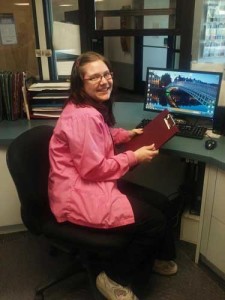 The Health Unit Coordinator’s responsibility is to perform clerical duties for both the emergency department and the acute care nursing stations, and they serve as a receptionist for all patients, visitors and persons requiring information and assistance. Sound like a typical office position? The reality is not so cut and dried. Many of the phone calls handled by the HUCs involve responding to emergency situations and making arrangements for transport via ambulance, fixed wing, or helicopter, while also preparing necessary transfer documents for the receiving facility. As many of our HUCs are also trained certified nursing assistants, you may also see them assisting in Code Blue situations by recording the events or assisting in any way that they can. They also assist with answering patient call lights in the hospital, as well as delivering meals to patients and assisting nursing staff with other patient needs.
The Health Unit Coordinator’s responsibility is to perform clerical duties for both the emergency department and the acute care nursing stations, and they serve as a receptionist for all patients, visitors and persons requiring information and assistance. Sound like a typical office position? The reality is not so cut and dried. Many of the phone calls handled by the HUCs involve responding to emergency situations and making arrangements for transport via ambulance, fixed wing, or helicopter, while also preparing necessary transfer documents for the receiving facility. As many of our HUCs are also trained certified nursing assistants, you may also see them assisting in Code Blue situations by recording the events or assisting in any way that they can. They also assist with answering patient call lights in the hospital, as well as delivering meals to patients and assisting nursing staff with other patient needs.
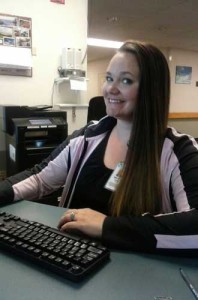 Tearful children being held in their mother’s arms checking in to see the emergency physician, the HUC needs to quickly assess the urgency of the situation and call for immediate assistance if appropriate. Once that assessment is complete, the HUC then needs to properly identify the patient, verify insurance information, get permission slips signed, and enter the necessary demographics to ensure accurate accountability and efficient healthcare processing. The HUC oftentimes travels to the patient bedside to complete the necessary paperwork so that the registration process does not impede the provision of the care the patient requires.
Tearful children being held in their mother’s arms checking in to see the emergency physician, the HUC needs to quickly assess the urgency of the situation and call for immediate assistance if appropriate. Once that assessment is complete, the HUC then needs to properly identify the patient, verify insurance information, get permission slips signed, and enter the necessary demographics to ensure accurate accountability and efficient healthcare processing. The HUC oftentimes travels to the patient bedside to complete the necessary paperwork so that the registration process does not impede the provision of the care the patient requires.
The same attention and care provided to the patient is also provided to family members, many of whom are distraught after following the ambulance here. Our HUCs swing into action providing comfort and information to the family members, and may also obtain information about the patient including medical history, lists of medications, and other vital information that can be passed on to the emergency room staff.
During your stay in the hospital, you will often see the HUCs following up on additional tests and therapy ordered. They also work closely with your insurance company to obtain proper authorizations to ensure that your stay is approved and they meet daily with the hospital utilization review team to make sure you are receiving the care you need. Like a traffic cop, the HUC makes sure things are flowing smoothly through all of the steps involved in your stay. The job doesn’t end there, once the patient departs, the HUC once again reviews the documentation to ensure that all of the medical record forms are complete and then they are scanned into the electronic record.
Lana Herzinger, HIM Director and supervisor of these HUCs, shared the following. “Truthfully, the HUCs would be better labeled with the title of ‘hub’, with many ‘spokes’ joining at their center, e.g. physicians, nursing staff, patient financial services, and medical records, and they are crucial to the smooth movement of the acute care and emergency department wheel. Everyone knows to go to their ‘hub’ to find the answers they need.”
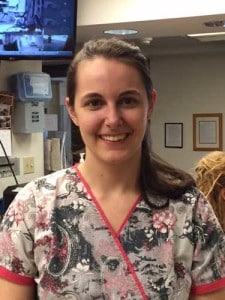
Boundary Community Hospital salutes the ED/Acute Care Health Unit Coordinator Team (Kim B., Leassa B., Anna R., Randi G., Anya K., Cory M., Jayme S., Melenie H.) and thanks them for their excellent service, attention to detail, thoroughness, and compassionate care they provide to the patients, employees, and visitors.
